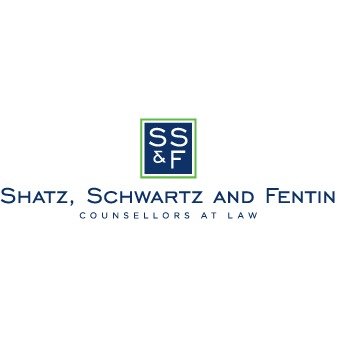Best Trusts Lawyers in Northampton
Share your needs with us, get contacted by law firms.
Free. Takes 2 min.
List of the best lawyers in Northampton, United States
About Trusts Law in Northampton, United States:
Trusts are legal arrangements that allow a person or an organization, known as the trustee, to manage assets on behalf of another party, known as the beneficiary. In Northampton, United States, trusts are regulated by both state and federal laws. Trusts offer several benefits such as asset protection, tax advantages, and ensuring the smooth transfer of wealth to future generations.
Why You May Need a Lawyer:
While creating a trust is a relatively straightforward process, there are situations where seeking legal advice from a lawyer specializing in trusts is crucial. Some common scenarios where you may need a lawyer include:
- Creating a trust to protect your assets and minimize estate taxes
- Designing a trust to provide for the financial needs of your minor children or loved ones with special needs
- Modifying an existing trust to reflect changes in your circumstances or wishes
- Resolving disputes or conflicts related to trusts
- Understanding the legal implications of being a trustee or a beneficiary
Local Laws Overview:
When dealing with trusts in Northampton, United States, it's essential to understand key aspects of the local laws. Some important points to consider include:
- The relevant state laws governing trusts, such as the Massachusetts Uniform Trust Code
- The requirements for creating a valid trust, including the need for a competent settlor, trustee, and beneficiary
- The different types of trusts recognized in Northampton, such as revocable trusts, irrevocable trusts, and charitable trusts
- The duties and responsibilities of trustees, including the management and distribution of trust assets
- The process of trust administration, including accounting, tax filings, and record-keeping
Frequently Asked Questions:
Q: What is the difference between a revocable and an irrevocable trust?
A revocable trust can be modified or revoked by the settlor during their lifetime, while an irrevocable trust cannot be altered once it is created.
Q: How can a trust help with estate planning?
A trust can help ensure a smooth transfer of assets to beneficiaries, minimize estate taxes, maintain privacy, and provide for the financial needs of family members.
Q: What are the responsibilities of a trustee?
A trustee has a fiduciary duty to manage the trust assets in the best interests of the beneficiaries. This includes investing assets wisely, distributing income or principal as outlined in the trust, and keeping accurate records.
Q: Can I serve as a trustee and a beneficiary of the same trust?
Yes, it is possible to serve as both the trustee and beneficiary of a trust, but it is important to consider potential conflicts of interest and comply with legal requirements.
Q: How can I modify an existing trust?
Modifying an existing trust often requires the consent of the settlor or beneficiaries, along with adherence to the specific procedures outlined in the trust agreement or state law.
Additional Resources:
For additional resources and information related to trusts in Northampton, United States, you may find the following helpful:
- The Massachusetts Bar Association
- Northampton Probate and Family Court
- Internal Revenue Service - Trusts
Next Steps:
If you require legal assistance regarding trusts in Northampton, United States, it is advisable to seek consultation from a qualified trusts lawyer. They will provide personalized advice based on your specific situation and guide you through the legal processes involved in creating, managing, or resolving issues related to trusts.
Lawzana helps you find the best lawyers and law firms in Northampton through a curated and pre-screened list of qualified legal professionals. Our platform offers rankings and detailed profiles of attorneys and law firms, allowing you to compare based on practice areas, including Trusts, experience, and client feedback.
Each profile includes a description of the firm's areas of practice, client reviews, team members and partners, year of establishment, spoken languages, office locations, contact information, social media presence, and any published articles or resources. Most firms on our platform speak English and are experienced in both local and international legal matters.
Get a quote from top-rated law firms in Northampton, United States — quickly, securely, and without unnecessary hassle.
Disclaimer:
The information provided on this page is for general informational purposes only and does not constitute legal advice. While we strive to ensure the accuracy and relevance of the content, legal information may change over time, and interpretations of the law can vary. You should always consult with a qualified legal professional for advice specific to your situation.
We disclaim all liability for actions taken or not taken based on the content of this page. If you believe any information is incorrect or outdated, please contact us, and we will review and update it where appropriate.








